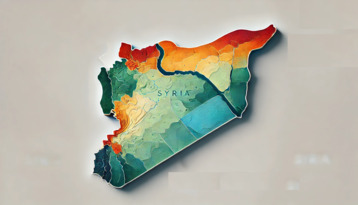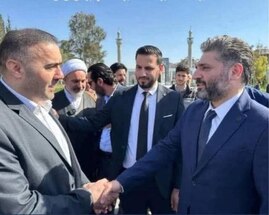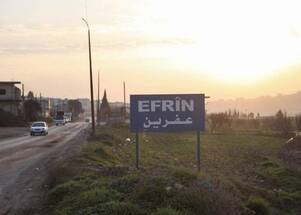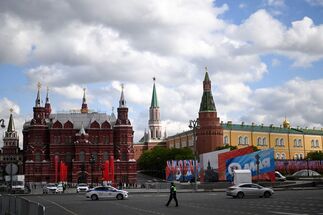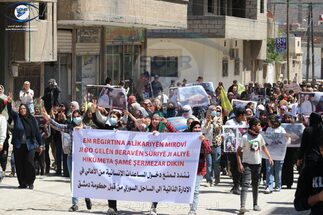-
Rocket fire after Israeli Gaza strike kills Palestinian commander
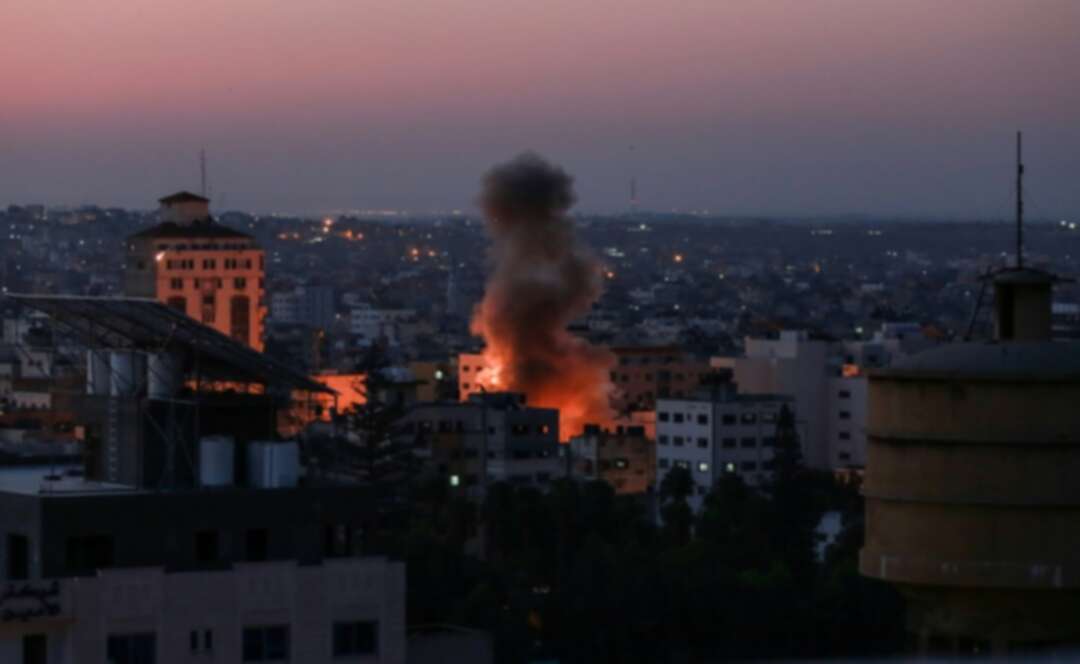
Israel's military killed a commander of Palestinian militant group Islamic Jihad in a strike on his home in the Gaza Strip on Tuesday, prompting retaliatory rocket fire and fears of a severe escalation in violence.
Separately in Damascus, Syrian state media reported that an Israeli strike hit the home of another Islamic Jihad militant, killing his son and another person. Israel had not commented on that strike.
Later Tuesday morning, Israel said it targeted two Islamic Jihad militants from the group's rocket-launching unit who were posing an immediate threat.
Gaza's health ministry reported one Palestinian killed in that strike in the northern Gaza Strip.
Islamic Jihad's armed wing announced the death of the commander in Gaza City after Israel confirmed it had targeted Baha Abu Al-Ata, 42. The group said Ata's wife was also killed.
Israel blamed Ata for recent rocket fire into its territory and said he was preparing further attacks.
The strike led to barrages of rocket fire from the Gaza Strip towards Israel and air raid sirens rang out in various parts of the country while residents ran to bomb shelters.
Israel's military said around 50 rockets had been fired at its territory and air defences had intercepted around 20 of them.
A house in Netivot, an Israeli town near the Gaza Strip, was hit and another rocket hit a junction at Gan Yavne near the coastal city of Ashdod, police said.
Video spread online showing the rocket that hit the road narrowly missing cars.
Israeli medics said they had treated 29 people.
"We woke up and saw the news regarding the assassination at 5:30 am, and we celebrated," said a man who gave his name only as Netanel in the town of Sderot, near the Gaza border.
"We are strong and we want to fully support the security of Israel."
Islamic Jihad said it targeted Jerusalem, Tel Aviv and other cities with rocket fire.
Schools were closed in both the Gaza Strip and in parts of Israel, including in commercial capital Tel Aviv.
The Israeli army ordered "non-essential" workers in Tel Aviv and central Israel to stay at home like those in the Gaza border region and banned public gatherings.
A building in the Gaza Strip, in which the Palestinian Islamic Jihad senior leader Baha Abu Al-Ata stayed in, was attacked," Israel's military said in a statement, calling it a joint operation between the army and Israel's Shin Bet domestic security service.
Damage from a blast could be seen at Ata's home in the Shejayia district in the east of Gaza City. Mosque loudspeakers were also announcing his death.
A total of 18 people were wounded and three killed in Gaza, according to the enclave's health ministry.
Israeli Prime Minister Benjamin Netanyahu was due to speak soon.
Islamic Jihad said it was on "maximum alert," while Hamas, the Islamist movement that rules the Palestinian enclave, threatened revenge.
Israel said Ata was behind rocket fire toward a music festival in the Israeli city of Sderot in August as well as further rocket attacks at the start of November.
It has also accused him of being behind sniper fire and drone launchings.
Ata "is responsible for most of the terror attacks in the last year from the Gaza Strip," the army said, describing him as a "ticking bomb".
It alleged he was "promoting preparations to commit immediate terror attacks in various ways towards Israeli civilians and (Israeli) troops during the recent few days".
In the separate strike in Syria, Islamic Jihad confirmed one of its officials, Akram Ajouri, was targeted in Damascus.
Syrian state news agency SANA said the strike targeted Ajouri's home "killing his son Muadh and another person".
The strikes and rocket fire raised the possibility of a severe escalation between Israel and Palestinian militants in Gaza.
Three wars have been fought between them since 2008, and Gaza has been under a strict Israeli blockade for more than a decade.
Islamic Jihad is the second most-powerful militant group in the Gaza Strip behind Hamas, to which it is allied.
Israel's military said it had "deployed troops and is prepared for a wide range of offensive and defensive scenarios."
It added however that it was not interested in an escalation.
The flare-up comes at a sensitive time politically for Israel.
A September 17 general election ended in a deadlock and a new government is yet to be formed. It was the second election since April, when polls also ended inconclusively.
You May Also Like
Popular Posts
Caricature
BENEFIT Sponsors Gulf Uni...
- April 17, 2025
BENEFIT, the Kingdom’s innovator and leading company in Fintech and electronic financial transactions service, has announced its sponsorship of the “Innovation and Sustainable Technology Solutions Competition (GU - IST Solutions), hosted by Gulf University at its main campus.
This strategic sponsorship reflects BENEFIT’s active role in advancing technological innovation and fostering sustainable solutions to future challenges. It also seeks to empower Bahraini youth by enhancing their skills, capabilities, and competitiveness in innovation and solution development—contributing meaningfully to the broader goals of sustainable development across all sectors.
As part of BENEFIT’s active involvement in the competition, the company has announced that Hanan Abdulla Hasan, Senior Manager of Public Relations and Communication, will serve on the competition’s supervisory committee. Her upcoming participation reflects BENEFIT’s forward-looking commitment to championing academic and professional excellence.
Commenting on the occasion, Hanan Abdulla Hasan, Senior Manager of Public Relations and Communication at BENEFIT, said, “We are privileged to support this pioneering initiative, which aligns seamlessly with BENEFIT’s enduring commitment to fostering innovation and nurturing the potential of Bahrain’s youth. Our participation is rooted in a deep sense of social responsibility and a firm belief in the pivotal role of innovation in shaping a sustainable future. Through such platforms, we seek to empower the next generation with the knowledge, skills, and foresight required to develop impactful solutions that address future challenges, in line with the United Nations Sustainable Development Goals 2030.”
Dr. Aseel Al Ayash Dean of the College of Engineering in Gulf University commented, “We extend our sincere gratitude to BENEFIT for their generous sponsorship and support of the Innovation and Sustainable Technology Solutions Competition. This contribution plays an instrumental role in helping us achieve the strategic goals of this initiative, namely, cultivating a culture of innovation and sustainability, encouraging efforts that address the imperatives of sustainable development, and enhancing the practical and professional capabilities of our students and participants.”
The event will bring together a diverse spectrum of participants, including secondary school students, university undergraduates, engineers, industry professionals, entrepreneurs, academic researchers, and subject matter experts representing a wide range of disciplines.
The competition seeks to inspire participants to develop and present innovative, sustainable technologies aimed at addressing pressing environmental, social, and economic challenges. It encourages the formulation of business models that integrate advanced technological solutions with core principles of sustainability. Moreover, it serves as a platform for emerging leaders, entrepreneurs, and innovators to contribute to the advancement of the Sustainable Development Goals, promote the ethos of responsible technology, and demonstrate its transformative potential across various sectors.
Attendees will have the opportunity to view a series of project presentations submitted by participants, covering diverse areas such as eco-friendly product design, smart and sustainable innovations, renewable energy technologies, water conservation and management, waste minimisation and recycling, green architectural solutions, and sustainable transportation systems. Outstanding projects will be formally recognised and awarded at the conclusion of the event.
opinion
Report
ads
Newsletter
Subscribe to our mailing list to get the new updates!

